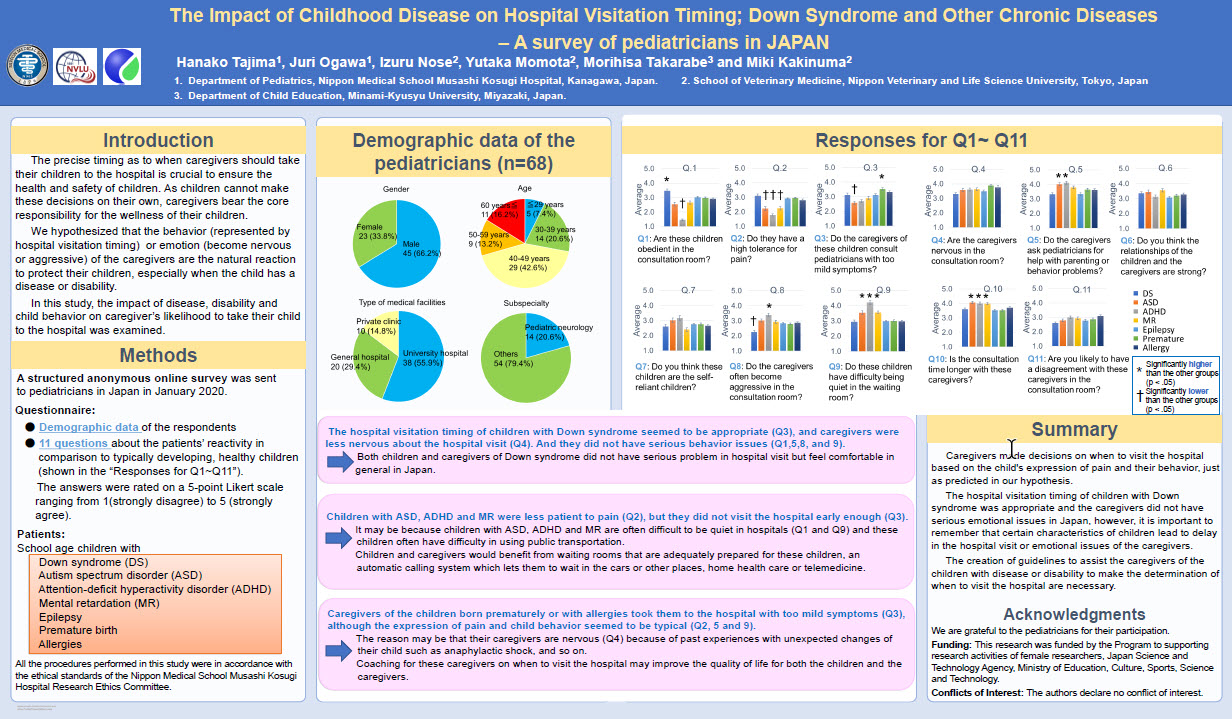The Impact of Childhood Disease on Hospital Visitation Timing; Down Syndrome and Other Chronic Diseases - A survey of pediatricians in JAPAN
The Impact of Childhood Disease on Hospital Visitation Timing; Down Syndrome and Other Chronic Diseases - A survey of pediatricians in JAPAN
- Department of Pediatrics, Nippon Medical School Musashi Kosugi Hospital, Kanagawa, Japan.
- School of Veterinary Medicine, Nippon Veterinary and Life Science University, Tokyo, Japan.
- Department of Child Education, Minami-Kyusyu University, Miyazaki, Japan
Contact: s7047@nms.ac.jp
Abstract
Background: The precise timing as to when caregivers should take their children to the hospital is crucial to ensure the health and safety of children. As children cannot make these decisions on their own, caregivers bear the core responsibility for the wellness of their children.
Research question: The aim of this study was to determine how disease, disabilities and child behavior can influence when and how often caregivers take their children to the hospital.
Method: A structured anonymous online survey was circulated to pediatricians in Japan. Pediatricians were queried about the patients' dispositions including their reactivity to pain, expression of pain, behavior at the hospital, and the timing of the visit in comparison to normal healthy children. Patients were school-aged children and included those with Down syndrome, autism spectrum disorder (ASD), attention-deficit hyperactivity disorder (ADHD), mental retardation (MR), epilepsy, premature birth or allergies.
Results: Sixty-eight out of the 80 pediatricians responded to the survey. The results indicated that the hospital visitation timing of children with Down syndrome seemed to be appropriate, and caregivers are less nervous about the hospital visit. And they do not have behavior issues suggesting that both children and caregivers feel comfortable in general. Children with ASD, ADHD and MR took them to the hospital later than they should have. Conversely, children born prematurely were taken to the hospital even when the symptoms were too mild.
Conclusion: Caregivers make decisions on when to visit the hospital based on the child's expression of pain and their behavior. It is important to remember that certain characteristics of children lead to delay in hospital visit. Our results point out that dullness to pain, high reactivity to pain, behavioral issues in the hospital could lead to delay in or unnecessary hospital visit.
Poster:
Download the PDF here


